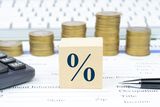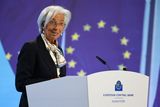Drivers ‘being punished’ as petrol and diesel prices set to rise four times in next 12 months
Fears for retailers in border counties if hikes go ahead
Government accused of ‘snubbing’ motorists with petrol and diesel excise increase next month
The Government has been accused of “punishing” motorists after it emerged they are facing four hikes in the cost of petrol and diesel in the next 12 months.
The four rises are likely to add around 15c to the cost per litre of petrol and around 12c to a litre of diesel.
The increases are leading to a gap in pricing between here and the North that has raised fears border fuel retailers will be put out of business.
Taoiseach Leo Varadkar yesterday said there would be no wavering from the planned excise duty hikes.
Speaking in Washington, where he is due to meet US president Joe Biden today, Mr Varadkar said the Government reduced excise duty on motor fuel in 2022 in response to higher prices caused by the war in Ukraine, at a time when petrol and diesel were about €2 a litre.
“They were temporary and there to reflect the fact that petrol and diesel prices had exceeded €2 a litre at one stage so, [Finance] Minister [Michael] McGrath, set out in the Budget how those excise duty cuts would end, and there is no change to that and it will be as it was set out in the Budget,” he said.
From the start of April, the cost of a litre of petrol will rise by 5c once Vat is added in – and by 4c for diesel.
This is the second-last move to restore the full excise duty on motor fuels.
There will be similar rises in August when excise duty levels on petrol, diesel and green diesel are fully restored.
A third rise in the cost of petrol and diesel is due in October’s Budget, when the planned hike in carbon tax is expected to add around 3c to a litre.
Then, there is expected to be a fourth rise in the cost of pump prices at the start of January, when an increase in the biofuels component of transport fuels will add between 1c and 2c to the cost per litre of both fuels.
Consumers’ Association of Ireland chairman Michael Kilcoyne claimed the multiple rises in the cost of motor fuel were going to hurt drivers.
“This is just punishing motorists and pushing up the cost of living. Higher fuel prices have an effect on lots of other goods and services,” he said.
Mr Kilcoyne said the yield from Vat, excise duty and other levies on motor fuels amounted to around €6bn a year.
He said the Government was taxing motorists far too heavily and called on Mr McGrath to postpone the next two hikes in excise duty due in April and August until after the Budget.
Read more
Forecourt retailers near the Border are under huge pressure after a 10c gap in the price per litre of petrol opened up, prompting motorists from the Republic to head to the North to fill up. There are around 390 forecourt retailers in the border counties of Donegal, Leitrim, Cavan, Monaghan and Louth.
The representative body for fuel importers, distributors and retailers, Fuels for Ireland, called on Mr McGrath to postpone the planned increase in excise duty on fuels scheduled for April 1.
Kevin McPartlan, of Fuels for Ireland, said the UK chancellor Jeremy Hunt had extended an reduction in excise duty for 12 months.
He said the two excise duty increases scheduled for April and August would lead to a significant difference in fuel prices between Ireland and the North. This would have a huge impact on retailers operating in the border counties.
Mr McPartlan said they would be at such a disadvantage that many faced the prospect of going out of business.
“There could be a 15c a litre difference in the price of petrol between retailers on both side of the Border by August,” he said.
“Undoubtedly, this would mean that retailers in counties Louth, Cavan, Monaghan, Leitrim, Sligo and Donegal would be under such huge pressure that many could go out of business.”
Fuel for Ireland called for the establishment of an expert group by the Department of Finance to review the taxation of energy for transport and heating.
Mr McGrath has rejected calls to further postpone the full restoration of the duties on motor fuels.
He said he recognised that households and businesses continued to face challenges. However, the Government must strike the appropriate balance between providing support and avoiding fuelling cyclical inflationary trends, he said in a Dáil reply.
Join the Irish Independent WhatsApp channel
Stay up to date with all the latest news









